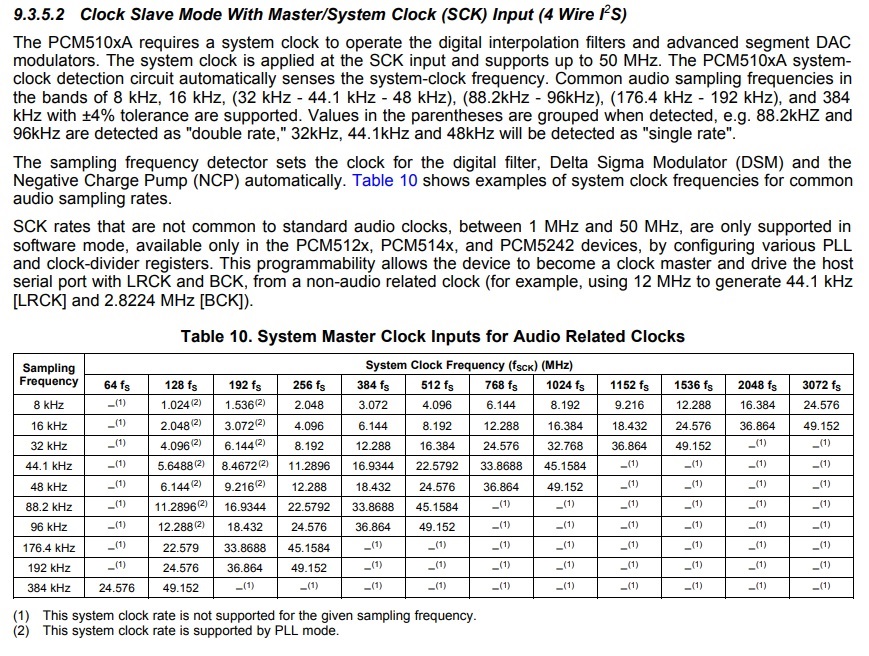Other Parts Discussed in Thread: PCM5100
Hi,
Some questions about the PCM/I2S interface of CC2564
1) Is there any specification of CC2564 mentioned the tolerance of PCM/I2C interface for the input sampling frequency?
2) If there is a tolerance, what CC2564 can do if the input sampling frequency is out of the tolerance? Can it be converted to 44.1kHz / 48kHz automatically?
3) If the input sampling frequency is 96kHz (DVD-Audio) or 2.8MHz (SACD), could CC2564 convert to 48KHz? If not, would you please advise what can we do for such high sampling frequency.
Thanks and best regards,
Kevin



